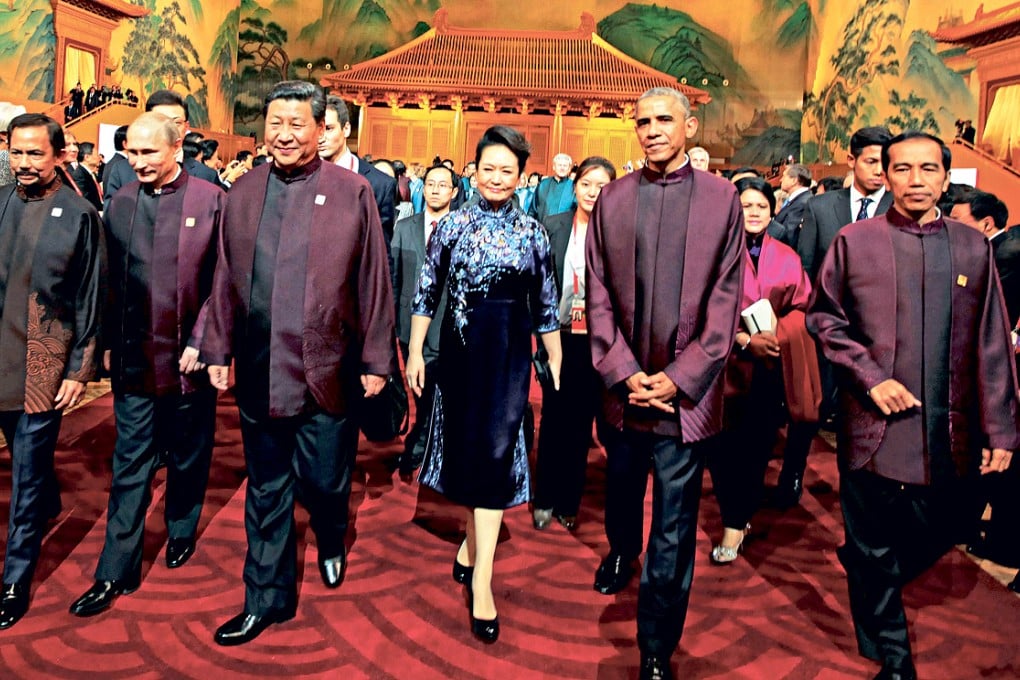Leaders step out in their Chinese-style costumes during Apec summit in Beijing
Donning local costumes is a tradition at Apec summits that was started by Bill Clinton handing out bomber jackets in Seattle in 1993; Obama tried to stop it, but China had its turn in the spotlight on Monday

The clothing worn by leaders at the Asia-Pacific Economic Cooperation ceremony on Monday night sought to reflect a rapidly growing superpower that seeks to innovate while preserving tradition, designers say.
Following the Apec tradition of donning locally designed clothing reflecting local culture, Apec state leaders and their companions wore Chinese suits and dresses in Beijing.
The men showed up in outfits with jacquard brocade, decorative patterns that reflect the waves of the sea, stand-up collars and raglan sleeves. The women leaders and wives of state leaders wore Chinese-style clothing with a feminine flair.
"We call this the New Chinese Suit," designer Wu Qingqing said in a phone interview. New because China has emerged as a world superpower since it last hosted an Apec summit in 2001 in Shanghai. "And also because this is an era of innovation," Wu said.
A team of Chinese designers had been preparing the clothing for a year. They chose a variety of colours, including burgundy, which was worn by presidents Barack Obama, Vladimir Putin and Xi Jinping on Monday night, sapphire and dark brown.
The tradition of wearing local attire which reflects the fashion and tradition of the host country began with former US president Bill Clinton, who handed out bomber jackets in Seattle in 1993. Other leaders followed suit.